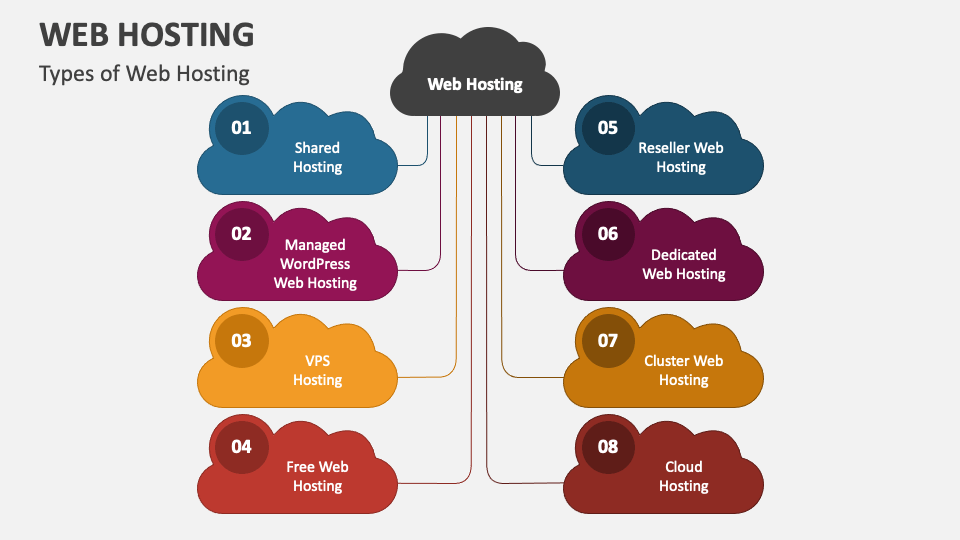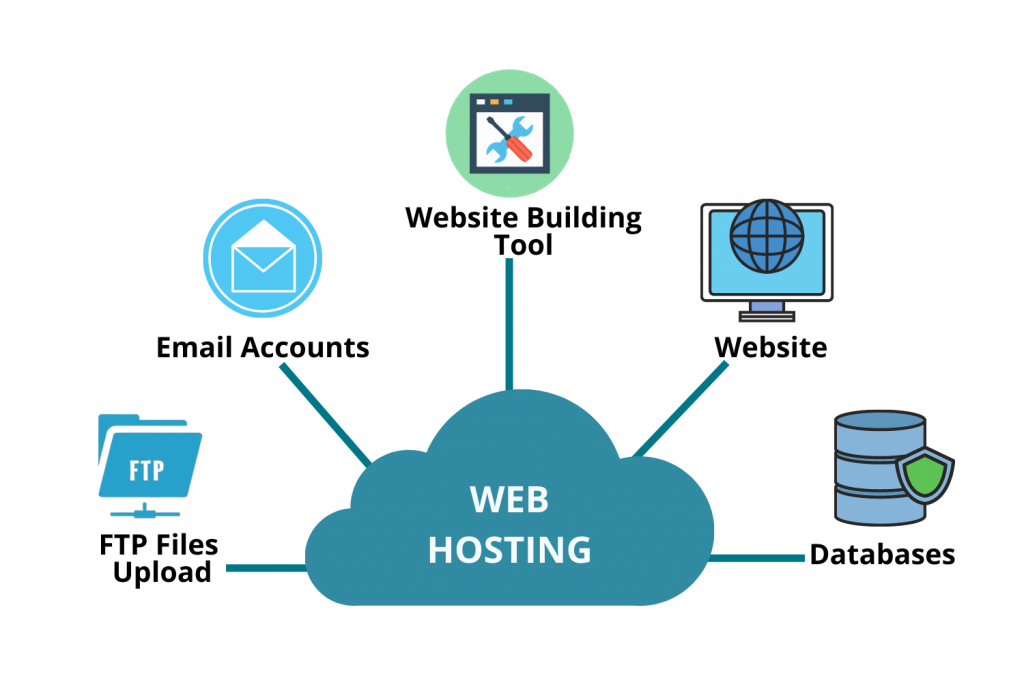What is Web Hosting?
Web hosting is the process of storing and serving website files and data on a server that’s connected to the internet. When a user types a website’s domain name in their browser, the browser sends a request to the server hosting the website, which then serves the website files to the user’s browser, allowing them to view the website.
How Does Web Hosting Work?
Web hosting works by storing website files and data on a server that’s connected to the internet. The server is responsible for responding to requests from web browsers and serving website files to users. Hosting providers manage the servers, providing hardware, software, and technical support required to keep the servers running smoothly.
Different Types of Web Hosting
There are different types of web hosting available, each with its own set of features, advantages, and disadvantages. The most common types of web hosting include:

- Shared Hosting: Shared hosting is a type of hosting where multiple websites share a single server and its resources, such as CPU, RAM, and storage. It’s an affordable option, ideal for small websites with low traffic volumes.
- VPS Hosting: Virtual Private Server (VPS) hosting is a type of hosting where a single server is partitioned into multiple virtual servers. Each virtual server has its own operating system and resources, offering more control and flexibility than shared hosting.
- Dedicated Hosting: Dedicated hosting is a type of hosting where a single server is dedicated to a single website or organization. It offers maximum control, security, and performance but comes at a higher cost.
- Cloud Hosting: Cloud hosting is a type of hosting that uses multiple servers to host a website, instead of a single server. It offers scalability, flexibility, and reliability, making it ideal for high-traffic websites.
Factors to Consider When Choosing a Web Host
When choosing a web host, there are several factors to consider, including:

- Reliability and Uptime: A web host should provide reliable uptime, ensuring that your website is available to visitors at all times.
- Performance and Speed: A fast-loading website is critical for user experience and SEO. Choose a web host that provides fast page load times and optimal performance.
- Security: A web host should provide robust security features, such as firewalls, SSL certificates, and backups, to protect your website and data from threats.
- Support: Choose a web host that provides 24/7 support, with multiple channels of communication, such as phone, email, and chat.
what are the top 10 best web hosting providers?
Here are 10 popular web hosting providers:
- Bluehost
- HostGator
- SiteGround
- A2 Hosting
- InMotion Hosting
- DreamHost
- WP Engine
- GreenGeeks
- iPage
- Liquid Web
Conclusion
In conclusion, web hosting is a critical component of any website, and choosing the right web host is essential for website performance, security, and reliability. Understanding the different types of hosting available and the factors to consider when choosing a web host can help you make an informed decision and get your website online with confidence.

